To optimise muscle recovery, make sure you consume enough protein for repair, stay hydrated, get enough sleep, control your stress, and perform appropriate warm-ups and cool-downs. Change up your workouts to avoid overtraining and make sure you get enough rest in between sessions.
Think about taking specific supplements, such as collagen or BCAAs. Pay attention to your body and modify the frequency and intensity as necessary. Include methods such as stretching and foam rolling. Adjust your strategy to each person's unique needs, taking age and genetic predispositions into account.
What is Muscle Recovery?
The process by which the body rebuilds and grows new muscle tissue after being stressed or injured during exercise is known as muscle recovery. Muscle inflammation and microscopic damage occur after strenuous exercise. Muscle size and strength increase as a result of the body's multiple mechanisms for repairing microtears during recovery.
Maintaining optimal muscle recovery is crucial for avoiding overtraining, reducing the chance of injury, and enhancing total sports performance.
What Causes Poor Muscle Recovery
Several factors can contribute to poor muscle recovery, which hinders the body's capacity to effectively rebuild and repair muscle tissue. It is essential to comprehend these causes to develop strategies that will improve recovery.
Inadequate nutrition
Lack of vital nutrients, especially protein, can impede the healing of muscles. Since proteins are the building blocks of muscles, inadequate consumption may result in partial muscle repair. Inadequate carbohydrate intake can also affect the replenishment of glycogen, which is necessary for energy during exercise.
Dehydration
Water is essential for many physiological functions, including the repair of muscles. Dehydration raises the risk of muscle cramps, interferes with temperature regulation, and obstructs the transport of nutrients. Maintaining proper hydration is crucial for the best possible recovery.
Overtraining
Overtraining can result from frequent, intense workouts that are followed by insufficient rest. Chronic fatigue, diminished performance, and hampered recuperation are the outcomes of this condition. The body needs enough downtime in between workouts to rebuild and strengthen its muscles.
Lack of sleep
A good night's sleep is essential for muscle repair. Growth hormone, which is essential for muscle growth and tissue repair, is released by the body during the deep sleep phases. Sleep disorders can interfere with this process and make recovery more difficult overall.
Stress
Prolonged stress raises cortisol levels, a hormone that can cause muscle breakdown. Elevated cortisol levels can cause the breakdown of muscle protein, which would slow down the healing process. Using stress-reduction strategies, like meditation or mindfulness, can be helpful.
Inadequate Warm-up and Cool-down
Ignoring the proper warm-up and cool-down exercises can make you more prone to injury and make recovery more difficult. While cool-down helps to remove waste products from the muscles and lessens soreness, warm-up gets the muscles ready for action.
Age and Genetics
Age can have an impact on muscle recovery; older people typically take longer to recover. Muscle adaptation and repair are also influenced by genetic factors. Customising recovery strategies can be aided by knowledge of one's genetic predispositions.
How does our body repair the damages?
To repair the damaged tissue, the body releases growth factors and immune cells during the healing process. Increased protein synthesis helps to rebuild and fortify muscles. For the best possible recovery, one must get enough sleep, eat a healthy diet, and stay hydrated. The muscles grow stronger as they heal, preparing them to face new challenges. Effective muscle regeneration is essential for both injury prevention and total sports performance.
Tips for optimising muscle recovery
Recovering from a workout is necessary because it helps restore muscles' normal function, reducing inflammation, and maintaining overall health. Here are a few tips for post-muscle recovery
- Eat an overall balanced diet- Eating a diet rich in carbohydrates and proteins helps in repairing damaged muscle cells, and increases muscle protein synthesis. Avoid eating ultra-processed foods, eat fruits and vegetables, and 1.4 to 1.8 grams of protein/kg of body weight should be consumed daily.
- Stay hydrated- Drink plenty of water. It is recommended to drink at least 4 litres of water every day. Research shows that drinking tart cherry juice also decreases inflammation, muscle damage, and muscle soreness (Levers et al., 2014).
- Creatine Monohydrate- It is a common supplement used in improving muscle strength and reducing muscle damage and inflammation. It also helps in refilling glycogen storage (Kreider et al., 2017).
- Sleep more- One should sleep to recover from exercise. Individuals who do intense workouts should take more rest than those who don't work. Sleeping 10 hours a night helps decrease muscle soreness, and inflammation, and increases muscle growth.
- Cryotherapy- This therapy helps in accelerating the recovery process by refreshing the blood-lymphatic fluid movement, and transporting nutrients and oxygen to the muscle tissues.
Muscle recovery foods
After exercise your muscles turn sore and may affect day-to-day activities. Here are a few foods that will help your muscles to recover fast.
Watermelon juice
The study emphasises watermelon juice as a possible functional beverage for athletes to relieve sore muscles. Because of its high concentration of the amino acid L-citrulline, it has vasodilatory effects that improve blood flow and may lessen soreness in the muscles. Including watermelon juice in your post-workout hydration regimen could promote efficient and organic muscle repair (Tarazona-Díaz et al., 2013b).
Fatty fish
Omega-3 fatty fish, such as trout, salmon, and sardines, are great providers of the nutrients your body needs to repair damaged muscles. Omega-3 fats, which are also present in fatty fish, have the potential to lower Delayed Onset Muscle Soreness (DOMS), fight inflammation, and promote muscle growth (Van Vliet et al., 2018b).
Beet juice
Beets are rich in betalains, which are pigments, and dietary nitrates. Beetroot juice may improve muscle recovery and performance in between sprint exercises, according to the study. Because of its nitrate content, it probably promotes better blood flow and oxygen delivery to muscles, which lessens fatigue and speeds up recovery. Including beetroot juice in a routine could provide a safe and efficient way to maximise athletic performance and recuperation (Clifford et al., 2016).
Eggs
Eating eggs during recovery from exercise helps to support the skeletal muscle's adaptive response to exercise training by facilitating the increase in muscle protein synthesis rates that occur after exercise (Fuchs et al., 2022).
Chocolate milk
Milk and dairy products also contain carbs. According to a 2019 review of 12 studies, chocolate milk may enhance both the efficiency of physical activity and post-exercise recovery (Amiri et al., 2018).
Starchy vegetables
Exercise that is too vigorous causes your muscles to lose glycogen, which is stored glucose. Consuming foods high in carbs encourages the replenishment of muscle glycogen. After a workout, starchy veggies like potatoes, butternut squash, and sweet potatoes are a good source of carbohydrates.
Refuelling glycogen stores and giving your body the protein it needs for muscle recovery can be accomplished with ease by combining starchy vegetables with a protein source like eggs or chicken (Alghannam et al., 2018).
Coffee
This is due to the caffeine in coffee blocking adenosine receptors. Following an injury, a chemical called adenosine is released. It makes your body's pain receptors active.
According to a 2019 study, consuming caffeine 24 and 48 hours following vigorous exercise enhanced muscle power recovery and decreased DOMS in both men and women when compared to a placebo (Chen et al., 2019).
Supplements for muscle recovery
After a highly intense workout, muscle fibres get damaged, and muscles get sore. Supplementing our body with nutrients can help recover muscles faster, promote muscle repair, and reduce muscle soreness.
SportVit
Decode Age’s SportVit is a dynamic blend that offers potential health benefits by increasing energy production, enhancing stamina, and maintaining overall health. It consists of NMN, L-Taurine, and Inositol. NMN helps in increasing energy levels and improving cognitive function. L-Taurine helps in increasing muscle strength, protecting against oxidative stress. Inositol helps in enhancing mood, reducing anxiety, and fostering insulin sensitivity.
L-Glutamine
It is used for bodybuilding and helps with muscle repair and growth. It also helps improve the protein synthesis rate within cells, by which cells use protein to build muscle tissues and skin.
Branched chain amino acids (BCAAs)
Leucine, isoleucine, and valine are some of the popular BCAAs taken to boost muscle protein synthesis, reduce DOMA, and facilitate muscle repair. They cannot be produced by our body so supplements should be taken.
Protein powder
Post-workout recovery needs protein supplements that foster muscle growth and prevent damage. It also makes an individual feel fuller, boosts metabolic rate, and reduces cortisol levels.
How Does Decode Age Bone and Muscle Health Supplements Help in Muscle Recovery?
SeneVit, Ca-AKG, and NMN are included in the Decode Age Bone and Muscle Health Bundle. These powerful supplements improve bone and muscle health by enhancing their synergistic effects. Ca-AKG promotes bone health by raising calcium availability and aids in the development of muscle by improving protein synthesis. In addition to raising NAD+ levels in muscle cells, NMN aids in the reduction of inflammation and oxidative stress. Their bioavailability is increased when combined with SeneVit, which promotes bone formation and muscle healing.
Conclusion
In summary, achieving optimal muscle recovery requires a multimodal strategy that includes proper diet, hydration, sleep, stress reduction, and customised exercise. Enhancing recovery, lowering the risk of injury, and enhancing general well-being are all made possible by identifying the reasons for inadequate recovery, addressing them with tailored strategies, and including foods and supplements that are good for muscles.
FAQs
1) What best helps muscle recovery?
The best muscle recovery is achieved through a combination of proper nutrition, hydration, rest, and strategic exercises tailored to individual needs.
2) What is the best time for muscle recovery?
The best time for muscle recovery is during rest and sleep, especially during the deep sleep phases at night.
3) Which muscles recover faster?
Smaller muscles like biceps and triceps tend to recover faster than larger muscles due to their size and workload.
4) Which muscles are hard to build?
Muscles like calves, forearms, and rear delts are often considered harder to build due to genetic factors and neglect.
5) Do cold showers help muscle recovery?
Yes, cold showers can aid muscle recovery by reducing inflammation and improving circulation, promoting faster healing, and reducing soreness.
References
Levers, K., Dalton, R., Galvan, E., Goodenough, C., O’Connor, A., Simbo, S., ... & Kreider, R. (2014). Powdered tart cherry supplementation demonstrates benefit on markers of catabolism and muscle soreness following an acute bout of intense lower body resistance exercise. Journal of the International Society of Sports Nutrition, 11(sup1), P31.
https://doi.org/10.1186%2F1550-2783-11-S1-P31
Kreider, R. B., Kalman, D. S., Antonio, J., Ziegenfuss, T. N., Wildman, R., Collins, R., ... & Lopez, H. L. (2017). International Society of Sports Nutrition position stand: safety and efficacy of creatine supplementation in exercise, sport, and medicine. Journal of the International Society of Sports Nutrition, 14(1), 18.
https://doi.org/10.1186%2Fs12970-017-0173-z
Tarazona-Díaz, M. P., Alacid, F., Carrasco, M., Martínez, I., & Aguayo, E. (2013). Watermelon juice: potential functional drink for sore muscle relief in athletes. Journal of agricultural and food chemistry, 61(31), 7522-7528.
https://doi.org/10.1021/jf400964r
Van Vliet, S., Beals, J. W., Martinez, I. G., Skinner, S. K., & Burd, N. A. (2018). Achieving optimal post-exercise muscle protein remodeling in physically active adults through whole food consumption. Nutrients, 10(2), 224.
https://doi.org/10.3390%2Fnu10020224
Clifford, T., Berntzen, B., Davison, G. W., West, D. J., Howatson, G., & Stevenson, E. J. (2016). Effects of beetroot juice on recovery of muscle function and performance between bouts of repeated sprint exercise. Nutrients, 8(8), 506.
https://doi.org/10.3390%2Fnu8080506
Brown, M. A., Stevenson, E. J., & Howatson, G. (2018). Whey protein hydrolysate supplementation accelerates recovery from exercise-induced muscle damage in females. Applied Physiology, Nutrition, and Metabolism, 43(4), 324-330.
https://doi.org/10.1139/apnm-2017-0412
Fuchs, C. J., Hermans, W. J., Smeets, J. S., Senden, J. M., van Kranenburg, J., Gorissen, S. H., ... & van Loon, L. J. (2022). Raw Eggs To Support Postexercise Recovery in Healthy Young Men: Did Rocky Get It Right or Wrong?. The Journal of nutrition, 152(11), 2376-2386.
https://doi.org/10.1093/jn/nxac174
Amiri, M., Ghiasvand, R., Kaviani, M., Forbes, S. C., & Salehi-Abargouei, A. (2019). Chocolate milk for recovery from exercise: a systematic review and meta-analysis of controlled clinical trials. European Journal of Clinical Nutrition, 73(6), 835-849.
https://doi.org/10.1038/s41430-018-0187-x
Alghannam, A. F., Gonzalez, J. T., & Betts, J. A. (2018). Restoration of muscle glycogen and functional capacity: role of post-exercise carbohydrate and protein co-ingestion. Nutrients, 10(2), 253.
https://doi.org/10.3390%2Fnu10020253
Chen, H. Y., Chen, Y. C., Tung, K., Chao, H. H., & Wang, H. S. (2019). Effects of caffeine and sex on muscle performance and delayed-onset muscle soreness after exercise-induced muscle damage: A double-blind randomized trial. Journal of Applied Physiology, 127(3), 798-805.


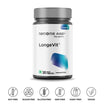
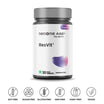
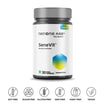
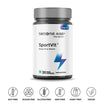
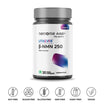
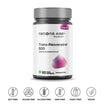
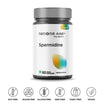
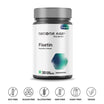
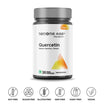
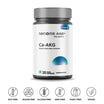
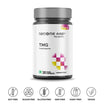
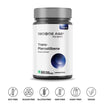

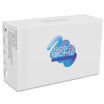
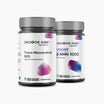
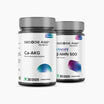
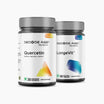
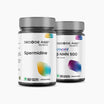
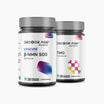
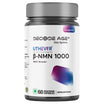
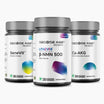
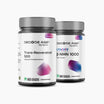
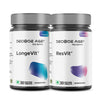
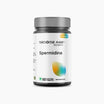
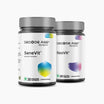
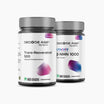
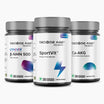
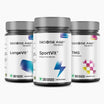
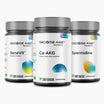
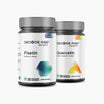
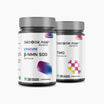
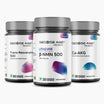
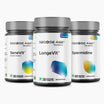
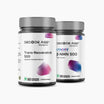



Leave a comment
This site is protected by reCAPTCHA and the Google Privacy Policy and Terms of Service apply.